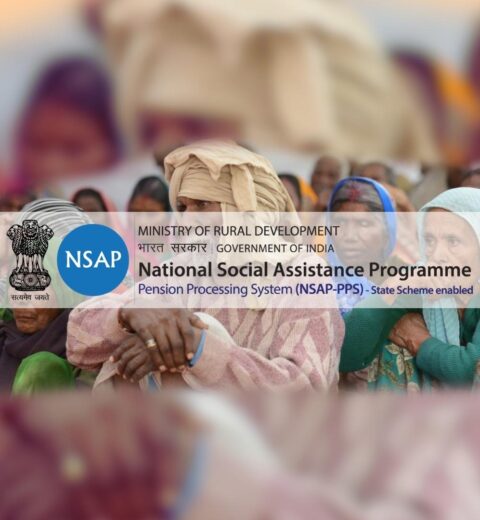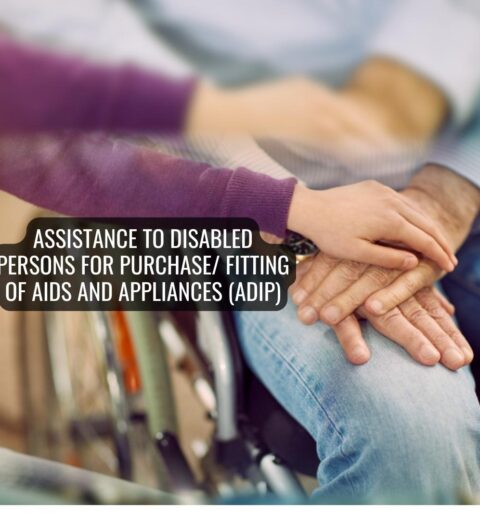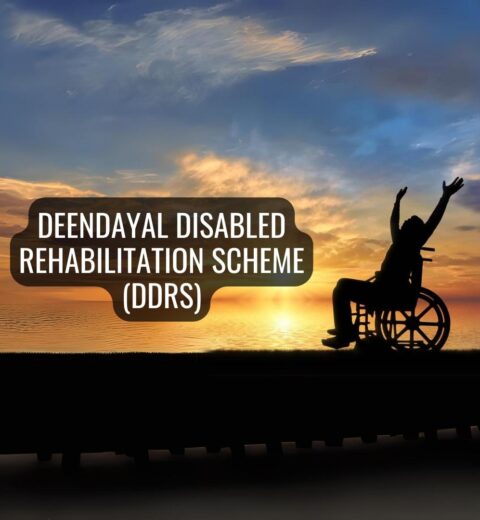Introduction:
The Umbrella Scheme for Development of Scheduled Castes stands as a pivotal government initiative aimed at fostering comprehensive welfare and empowerment for the Scheduled Castes community. Envisioned to address the unique socio-economic challenges faced by Scheduled Castes, this scheme is a testament to the government’s commitment to promoting inclusivity and social justice. With a strategic focus on education, entrepreneurship, healthcare, and social welfare, the scheme encompasses a wide array of initiatives aimed at breaking systemic barriers and ensuring the holistic development of Scheduled Castes. Administered by the Ministry of Social Justice and Empowerment, this program underscores the government’s dedication to uplifting marginalized communities and building a more equitable society. This blog will delve into the historical evolution, key components, implementation mechanisms, and the transformative impact of the Umbrella Scheme for Development of Scheduled Castes, shedding light on its crucial role in shaping a more inclusive and empowered nation. Envisioned to address the multifaceted challenges faced by this section of society, the scheme embodies a comprehensive approach to fostering socio-economic development, educational empowerment, and overall well-being. As we delve into the intricacies of this government initiative, it becomes evident that it goes beyond financial aid, aiming to break systemic barriers and create an environment conducive to the flourishing of the Scheduled Castes. This blog will navigate through the historical evolution, key components, and the tangible impact of the Umbrella Scheme for Development of Scheduled Castes, shedding light on its pivotal role in shaping a more inclusive and equitable society.
Historical Evolution:
The historical evolution of the Umbrella Scheme for Development of Scheduled Castes traces its roots to the foundational principles of social justice enshrined in the Constitution of India. The scheme’s inception reflects a concerted effort by the government to address the historical disadvantages faced by the Scheduled Castes community. Over the years, it has evolved as a dynamic and adaptive framework, responding to changing socio-economic landscapes and the specific needs of the Scheduled Castes. Administered by the Ministry of Social Justice and Empowerment, the scheme represents a continuous commitment to the welfare and empowerment of Scheduled Castes, contributing significantly to the broader narrative of Scheduled Caste welfare in India. This historical journey underscores the government’s dedication to dismantling systemic barriers and fostering an environment conducive to the overall development of the Scheduled Castes community. The historical roots of the Umbrella Scheme for Development of Scheduled Castes trace back to the visionary ideals of social justice and equality enshrined in the Constitution of India. Recognizing the historical disadvantages faced by the Scheduled Castes, the government has continuously evolved its strategies to uplift this community. Over the years, various components of the scheme have been refined and expanded, aligning with the changing socio-economic landscape. The Ministry of Social Justice and Empowerment, through its dedicated efforts, has been at the forefront of implementing and enhancing the Umbrella Scheme, reflecting a commitment to eradicating discrimination and ensuring the well-being of Scheduled Castes across the nation.
Financial Assistance and Educational Empowerment:
A cornerstone of the Umbrella Scheme for Development of Scheduled Castes lies in its commitment to providing financial assistance and fostering educational empowerment within the Scheduled Castes community. Recognizing the pivotal role of education in breaking the cycle of socio-economic disparities, the scheme allocates resources for scholarships, stipends, and grants to empower SC students. This strategic focus ensures that financial constraints do not hinder the educational aspirations of the Scheduled Castes, promoting inclusivity and equal opportunities. By addressing the specific needs of SC students, the scheme contributes significantly to the broader goal of building a more educated and skilled workforce within the Scheduled Castes community, aligning seamlessly with the government’s dedication to Scheduled Caste welfare and empowerment. One of the pivotal components of the Umbrella Scheme is its focus on providing financial assistance to individuals from Scheduled Castes. This assistance spans various sectors, including education, skill development, and entrepreneurial ventures. Scholarships, stipends, and grants are allocated to ensure that financial constraints do not impede the educational aspirations of SC students. The scheme’s emphasis on education stems from the understanding that empowering the younger generation is crucial for breaking the cycle of poverty and ensuring long-term socio-economic development within the Scheduled Castes community.
Entrepreneurship and Skill Development:
The Umbrella Scheme for Development of Scheduled Castes places a strong emphasis on entrepreneurship and skill development as integral components of its strategy for empowering the Scheduled Castes community. Recognizing the transformative potential of economic self-sufficiency, the scheme facilitates avenues for entrepreneurial ventures and imparts skill development training to Scheduled Castes individuals. Through financial support, training programs, and access to resources, the scheme aims to foster a culture of entrepreneurship, enabling individuals from the Scheduled Castes to create sustainable livelihoods and contribute to economic growth. This proactive approach aligns with the broader objectives of the government’s commitment to Scheduled Caste welfare, ensuring that economic empowerment becomes a catalyst for social upliftment and a key driver for the overall development of the Scheduled Castes community. Recognizing the importance of economic self-sufficiency, the Umbrella Scheme places a strong emphasis on entrepreneurship and skill development among the Scheduled Castes. Financial support is extended to SC individuals interested in starting their own businesses or engaging in skill enhancement programs. This strategic focus not only fosters economic independence but also contributes to job creation within the community. The scheme’s holistic approach addresses the dual challenges of unemployment and economic disparity faced by the Scheduled Castes, thereby laying the foundation for sustainable development.
Healthcare and Social Welfare:
The Umbrella Scheme for Development of Scheduled Castes extends its commitment to the holistic well-being of the Scheduled Castes community through a comprehensive focus on healthcare and social welfare initiatives. Acknowledging the multifaceted challenges faced by the Scheduled Castes in accessing quality healthcare, the scheme directs efforts towards ensuring equitable health services and facilities. By promoting awareness, organizing health camps, and enhancing healthcare infrastructure in Scheduled Caste-dominated areas, the scheme aims to address health disparities and contribute to improved overall well-being. Additionally, social welfare measures are integrated to uplift the marginalized sections, encompassing initiatives that focus on housing, sanitation, and community development. Through this multifaceted approach, the scheme aligns with the government’s overarching commitment to Scheduled Caste welfare, striving to create a more inclusive and healthier society for the benefit of the Scheduled Castes community. The Umbrella Scheme for Development of Scheduled Castes extends its support to healthcare initiatives and social welfare programs. Health camps, medical facilities, and awareness campaigns are organized to address the specific health challenges faced by the SC community. Additionally, schemes for housing, sanitation, and community development are integral components, reflecting a commitment to creating a conducive environment for the overall well-being of Scheduled Castes.
Implementation Mechanism:
The implementation mechanism of the Umbrella Scheme for Development of Scheduled Castes is a well-orchestrated framework designed to ensure effective and targeted delivery of benefits to the Scheduled Castes community. Administered by the Ministry of Social Justice and Empowerment, the scheme operates through a decentralized approach, involving state governments, district administrations, and local bodies. This multi-tiered structure facilitates the customization of interventions based on the unique needs of different regions and communities within the Scheduled Castes. Monitoring and evaluation mechanisms are integrated to track the progress and impact of the initiatives, ensuring transparency and accountability in the implementation process. Through this robust implementation mechanism, the scheme endeavors to maximize its reach, fostering genuine empowerment, and creating positive socio-economic transformations within the Scheduled Castes community as part of the broader commitment to Scheduled Caste welfare. The effective implementation of the Umbrella Scheme involves collaboration between the Ministry of Social Justice and Empowerment, state governments, and various implementing agencies. Stringent monitoring mechanisms are in place to ensure that the benefits reach the intended beneficiaries. Transparent processes, grievance redressal mechanisms, and regular evaluations contribute to the efficient execution of the scheme, reinforcing the government’s commitment to accountability and inclusivity.
Challenges and Solutions:
Despite its commendable objectives, the Umbrella Scheme for Development of Scheduled Castes faces challenges that warrant thoughtful consideration. One challenge is the need for enhanced awareness and outreach, ensuring that the benefits of the scheme reach the most remote and marginalized sections of the Scheduled Castes community. Another challenge lies in addressing socio-economic disparities within the community itself, necessitating tailor-made solutions to accommodate diverse needs. Additionally, bureaucratic hurdles and delays in the disbursement of funds can hinder the timely execution of projects, affecting the overall impact. However, the scheme is poised to overcome these challenges through strategic measures. Increasing awareness through community engagement, leveraging technology for efficient implementation, and streamlining administrative processes are proposed solutions. By addressing these challenges head-on, the scheme can fortify its mission, ensuring that Scheduled Caste welfare initiatives translate into tangible improvements for the community. While the Umbrella Scheme for Development of Scheduled Castes has made significant strides, challenges persist. Some of these challenges include inadequate awareness, bureaucratic delays, and regional disparities in implementation. Addressing these issues requires a concerted effort involving community engagement, targeted awareness campaigns, and continuous evaluation and refinement of implementation strategies. By understanding the challenges, the scheme can evolve to better meet the needs of the Scheduled Castes and overcome systemic barriers to empowerment.
Impact on Society:
The Umbrella Scheme for Development of Scheduled Castes has left an indelible impact on society, fostering positive transformations within the Scheduled Castes community. Through its multifaceted interventions in education, entrepreneurship, healthcare, and social welfare, the scheme has contributed significantly to narrowing socio-economic disparities. Increased educational opportunities and financial support have empowered countless Scheduled Caste individuals, paving the way for a more skilled and knowledgeable workforce. Entrepreneurial initiatives have stimulated economic growth, while healthcare and social welfare measures have improved the overall well-being of the community. The scheme’s impact extends beyond mere statistical indicators; it is evident in the enhanced confidence, self-reliance, and social integration of Scheduled Castes individuals. As a cornerstone of Scheduled Caste welfare, this scheme exemplifies the government’s commitment to creating an inclusive and equitable society, where every individual, regardless of background, can thrive and contribute meaningfully to the nation’s progress. The societal impact of the Umbrella Scheme for Development of Scheduled Castes is multi-faceted. Beyond the individual beneficiaries, the scheme contributes to the creation of a more inclusive and equitable society. The educational empowerment of SC individuals leads to increased representation in various professional fields, breaking stereotypes and fostering diversity. Economic independence through entrepreneurship and skill development not only uplifts individuals but also contributes to the economic growth of the nation. Moreover, the emphasis on healthcare and social welfare reinforces the idea of a compassionate and just society.
Conclusion:
In conclusion, the Umbrella Scheme for Development of Scheduled Castes stands as a pivotal initiative in the realm of Scheduled Caste welfare, embodying the government’s unwavering commitment to fostering inclusivity, empowerment, and socio-economic progress. By addressing the multifaceted challenges faced by the Scheduled Castes community, the scheme has played a transformative role in enhancing educational opportunities, promoting entrepreneurship, improving healthcare access, and advancing social welfare. Through its structured implementation mechanism and targeted interventions, the scheme has contributed significantly to reducing disparities and empowering individuals within the Scheduled Castes. As an integral part of the broader welfare policies, this initiative underscores the government’s dedication to creating a more equitable and just society. Moving forward, sustained efforts, adaptive strategies, and community involvement will be essential to ensuring the continued success and positive impact of the Umbrella Scheme for Development of Scheduled Castes in the pursuit of comprehensive Scheduled Caste welfare. The Umbrella Scheme for Development of Scheduled Castes serves as a cornerstone in the government’s commitment to social justice and inclusive development. As it continues to evolve and adapt to the changing needs of the SC community, the scheme stands as a beacon of hope and empowerment. By addressing educational, economic, and healthcare challenges, it not only transforms individual lives but also contributes to the broader goal of building a more inclusive and harmonious society. As we navigate the complexities of social development, the Umbrella Scheme remains a shining example of how government initiatives can be catalysts for positive change, fostering a future where every individual, regardless of their background, can realize their full potential.




